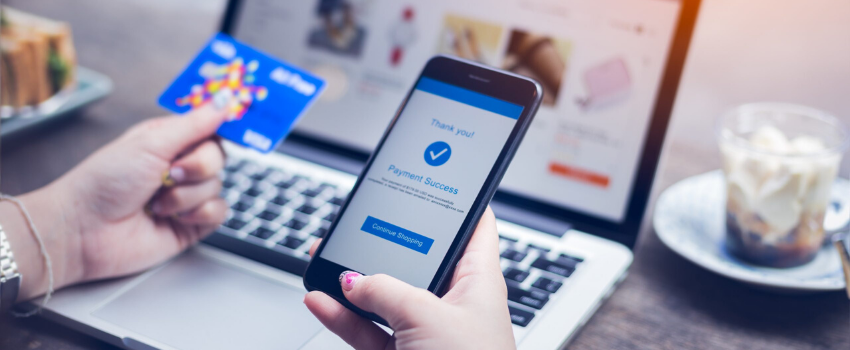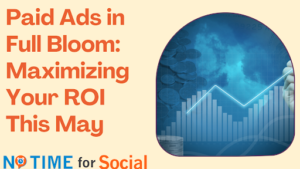COVID-19 has turned the entire world upside down. Forced social distancing, business closures, skyrocketing unemployment rates, medical supply shortage are just a few of the things that have been on the minds of people across the U.S.
30 days of quarantine is enough to make most people stir crazy but a recent interview with Kit Yarrow, a consumer psychologist with the US Chamber of Commerce, highlights just how much our “new normal” is changing people – especially when it comes to making purchases. Basically, businesses and brands need to walk a super fine line of promoting products but not in an insensitive way.
At first glance, you’re probably thinking “But there is a global pandemic right now! How can you be worried about how people are buying!” We hear you.
Now is definitely not the time for lavish product launch parties. Save that sweet vacation giveaway for another quarter. Don’t try to launch a fashionable face mask. If there is one thing business and marketing teams need to focus on right now it’s how their message will be received. After all, you can’t even go to the grocery store right without hazmat gear.
But at the same time, businesses have to keep going.
Restrictions and social isolation have caused drastic changes in industries, especially in the restaurant and hospitality sector. The unemployment rate alone went from around 4% in late February to over 13% by the end of March. Experts are already starting to throw around the word “recession”. We need businesses more now than ever before to keep people working and give them a reason to put money back into the economy.
To help businesses understand this “it’s not what you say, it’s how you say it” concept and to help any business struggling with sales due to COVID-19 restrictions we’ve compiled some valuable info and a few tips. Here’s what you need to know.
Buying Patterns Change In A Crisis
The consumer mindset typically follows a pattern or goes through stages. Depending on what school of thought you follow, it is anywhere from 3 to about 8 from product awareness to final purchase and follow up.
During a crisis, emotion adds an additional layer of complexity to a consumer’s decision-making process. Often this leads to irrational decisions also known as panic buying (hence the toilet paper crisis across America) but it also can create two other scenarios business owners need to watch out for including social buying and frozen buying.
Here’s a quick recap of three new buying patterns in a crisis:
- Social buying- buying what everyone else is buying.
- Panic buying- all bets are off as seen with the toilet paper fiasco.
- Frozen buying- consumers stop buying altogether because they are paralyzed by fears, like fear of losing a job.
Can you reach consumers in these crisis buying stages? Absolutely.
Yarrow suggests meaningful storytelling and demonstrating your business’s generosity. Marketing messages that fail to read the current state of affairs will most definitely fail and could possibly ruin your brand equity.
Action over Words
This is a unique time that works in favor of your business. This opportunity gives you a chance to build a bond with your consumers. During a crisis, a consumer is more likely to buy from a company that is portrayed as caring and nurturing. This is a chance to build a relationship with your client and be recognized as caring and nurturing.
It’s been proven that consumers vote with their money for companies and businesses that align with their values and beliefs. But a crisis only encourages that attitude. Consumers want to know what your company is doing to help its employees and the community.
“What businesses do now is more important than what they say,” said Yarrow.
Companies that have donated food to hospitals or shift production to help make masks are stories consumers adore. These stories make a lasting impact in their mind.
What Can Your Business Do Right Now?
During this crisis, we’ve seen that the real heroes are grocery store workers, truckers, and healthcare workers. The idea of a hero is shifting in the consumer’s mind. If you are a business owner and have the ability to help do so now by recognizing these everyday heroes. Some examples could be donating a percentage of sales, donating supplies, or having a special like buy one give one.
You can even recognize your own workers and celebrating the ones in hospitals and groceries will help. Sam’s Club has been celebrating their “retail heroes” on their TV in the warehouse and it’s quite heartfelt. (Watch the video here). They call out workers by name and store locations to thank them.
Use this time to also really thank your customers and not with the typical “we appreciate your business” canned response. Instead, tell customers why they matter to your business and thank them for being a part of it. Sure running a customer appreciation sale or special discount is nice and everyone loves a good deal but do your customers know that they are also supporting a local business by choosing you? Do they know how much you as a business owner gives back?
Key Takeaways
COVID-19 has presented unprecedented challenges for businesses and consumers. Times are hard and confusing, but this is a positive change you can make for your company that can create a lasting impact. What your company does now will stay in consumer’s minds for years to come.
- Focus on the delivery of your message and how it will be received – does it match the current social and economic sentiment?
- Overcoming customer buying patterns is a challenge but you can (and should) reach people right now and keep going
- We are all in this together. Use your platforms, customers, brand rally support, create awareness, and to help others in need in any way you can.
If you don’t know what actions to take, contact us and we’ll help!





